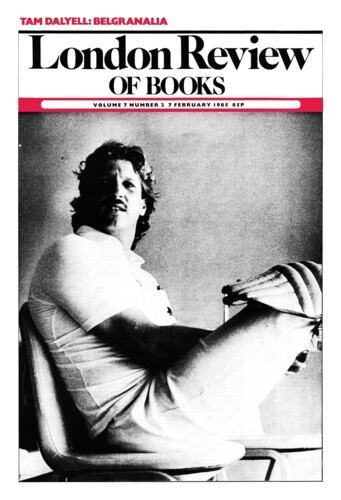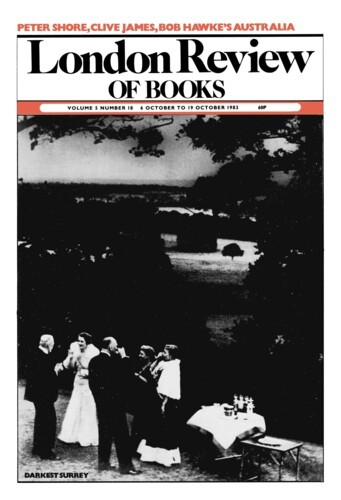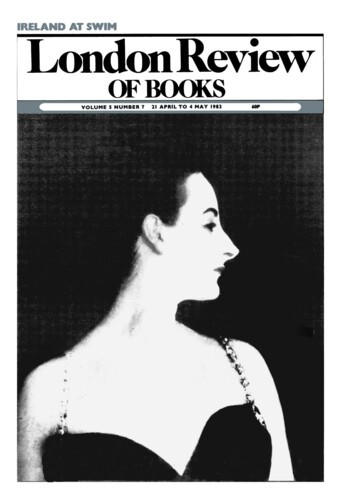Mozart’s Cross
Brigid Brophy, 7 August 1986
Mozart the letter-writer, like Mozart the composer of virtually every form and species of music, is the supreme non-bore. The ‘daughter of Hamm, the Secretary for War’, must, he reports to his father from Augsburg in 1777, have a gift for music since, even without having been well taught, she can play several clavier pieces ‘really well’. Yet she is an affected performer. Tuition in Salzburg from Mozart père would improve both her musical knowledge and her intelligence, and the teacher would get ‘plenty of entertainment’ in return.




